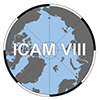|
|
|
|
|
|
|
|
No Arctic-science events are announced for today.
|
Media
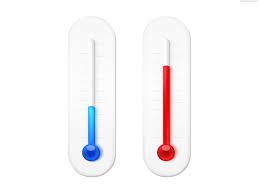 [Opinion] Hot Times in the Arctic. [Opinion] Hot Times in the Arctic. In late February, a large portion of the Arctic Ocean near the North Pole experienced an alarming string of extremely warm winter days, with the surface temperature exceeding 25 degrees Fahrenheit above normal. These conditions capped nearly three months of unusually warm weather in a region that has seen temperatures rising over the past century as greenhouse gas concentrations (mostly carbon dioxide and methane) have increased in the atmosphere. At the same time, the extent of frozen seawater floating in the Arctic Ocean reached new lows in January and February in 40 years of satellite monitoring. New York Times
The Fast-Melting Arctic is Already Messing with the Ocean's Circulation, Scientists Say. Scientists studying a remote and icy stretch of the North Atlantic have found new evidence that fresh water, likely melted from Greenland or Arctic sea ice, may already be altering a key process that helps drives the global circulation of the oceans. In chilly waters on either side of Greenland, the ocean circulation "overturns," as surface waters traveling northward become colder and more dense and eventually sink, traveling back southward toward Antarctica at extreme depths. The Washington Post
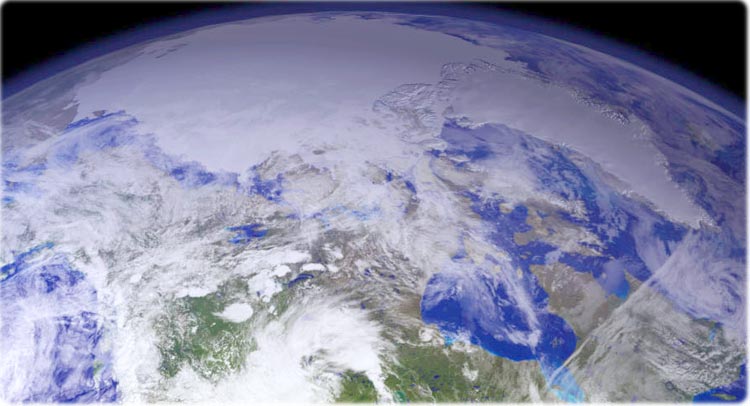 Rapid Arctic Warming and Melting Ice are Increasing the Frequency of Blizzards in the Northeast, Study Finds. Rapid Arctic Warming and Melting Ice are Increasing the Frequency of Blizzards in the Northeast, Study Finds. Three blockbuster winter storms have bombarded the Northeast this month. Meanwhile, Arctic sea ice fell to record low winter levels. Temperatures, in the dead of winter, rocketed to the melting point at the North Pole, nearly 60 degrees above normal. All of this wild weather is tied together, part of a trend, and linked to climate change, a study published in the journal Nature Communications finds. Washington Post
NASA Collaborates with UW Professor in Arctic Climate Research. In 1967, the citizens of Earth were treated to a fantastical image: the first photograph ever showing Earth and its swirling white clouds with the moon in the same frame. This photograph, taken by NASA's Application Technology Satellite I, was made possible through a collaboration with UW-Madison professor Verner E. Suomi, who became known as the "Father of Satellite Meteorology." Suomi's research not only assisted NASA in taking these incredible photos, but it also acted as a springboard for NASA's important role in climate science today. In the 1950s, Suomi led a project to measure the thermal energy levels of the entire earth from space for the first time. His measurements spearheaded the use of satellites to measure the energy flowing in and out of Earth to better understand our climate. The Daily Cardinal
Arctic Fishery Issues to be Discussed at International Conference in Murmansk. Over 150 experts from Norway, Finland, the Netherlands and other countries, plus Russian regions as well, will participate in the Fishery in the Arctic: Modern Challenges, International Expertise and Prospects fifth international conference, which will open on Wednesday in Murmansk. This year, experts will focus on updating the production facilities of the fishing industry and developing international fisheries cooperation in the Arctic, said a representative from the Ministry of Economic Development of the Murmansk Region. The Arctic 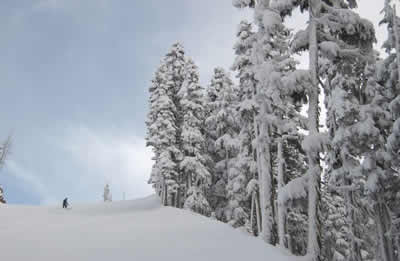 Exceptionally Large Amount of Winter Snow of Northern Hemisphere This Year. Exceptionally Large Amount of Winter Snow of Northern Hemisphere This Year. The new Arctic Now service developed by the Finnish Meteorological Institute shows with one picture the extent of the area in the Northern Hemisphere currently covered by ice and snow. This system shows the accurate state of the Arctic. In the Northern Hemisphere, the maximum seasonal snow cover occurs in March. "This year has been a year with an exceptionally large amount of snow. The variation from one year to another has been somewhat great, and especially in the most recent years, the differences between winters have been very great," says Kari Luojus, senior research scientist at the Finnish Meteorological Institute. Phys.org
|
|
Future Events
Preparing for a Northwest Passage; The Role of New England in Navigating the New Arctic, March 25-27, 2018 (Durham, New Hampshire USA). This workshop pairs two of NSF's 10 Big Ideas: "Navigating the New Arctic" and "Growing Convergence Research at NSF." During this event, participants will assess economic, environmental, and social impacts of Arctic change on New England and establish convergence research initiatives to prepare for, adapt to, and capitalize on these effects. Shipping routes through an ice-free Northwest Passage in combination with modifications to ocean circulation and regional climate patterns linked to Arctic ice melt will affect trade, fisheries, tourism, coastal ecology, air and water quality, animal migration, and demographics not only in the Arctic but also in lower latitude coastal regions such as New England. With profound changes on the horizon, this is a critical opportunity for New England to prepare for uncertain yet inevitable economic and environmental impacts of Arctic change. Workshop website: here.
48th International Arctic Workshop 2018, April 5-6, 2018 (Boulder, Colorado USA). Hosted by the Institute of Arctic and Alpine Research (INSTAAR), University of Colorado The 2018 Arctic Workshop welcomes a community that includes all career stages - from student to distinguished world-class expert. The Arctic Workshop is open to all interested in high latitude environments, including those of the past, present, and future. Talks and posters on all aspects of Arctic science, social science, and engineering are invited, including Arctic and Antarctic climate, anthropology, atmospheric chemistry, engineering and infrastructure, environmental geochemistry, paleoenvironment, sociology, archeology, geomorphology, hydrology, glaciology, soils, ecology, oceanography, Quaternary history and more. If you are studying the Arctic, this is the conference for you.
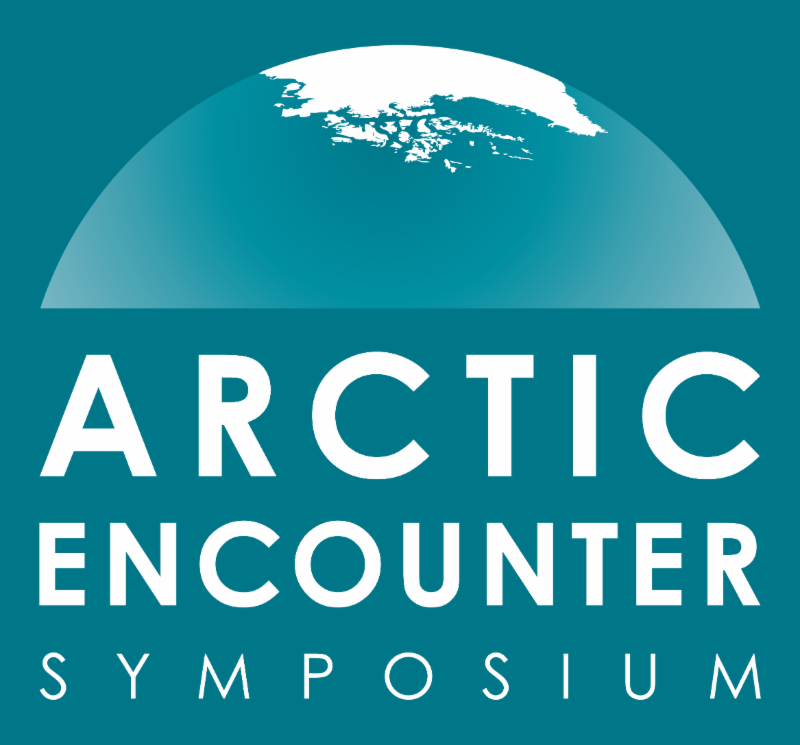 5th Annual Arctic Encounter Symposium (AES), April 19-20, 2018 (Seattle, WA, USA) 5th Annual Arctic Encounter Symposium (AES), April 19-20, 2018 (Seattle, WA, USA) The Arctic Encounter, the largest annual Arctic policy conference in the U.S., will convene policymakers, industry leaders, scientists, Arctic artists and musical performers, and other stakeholders to debate and discuss emerging Arctic challenges and opportunities including policy, innovation, security, and development. The mission of AES is to raise awareness, engage challenges, and develop solutions for the future of the Arctic region and the people who live there. The 5th annual AES will take place in downtown Seattle at the Bell Harbor International Conference Center on Pier 66.
2018 North by North Festival, April 23-29, 2018 (Anchorage, Alaska USA). The North by North Festival captures the spirit of Alaska and the Arctic - to address our challenges and opportunities with Northern innovation and resilience, to build on a rich history and to ensure a future full of promise. The Festival is for the North, and organized by Northerners, with goals of sustainability, livability and growth. The Festival brings innovators from across Alaska, the nation and other Arctic regions to collaborate and address local and circumpolar challenges. Through knowledge, governance, business, design, film, music, food, literature and art, we celebrate the North.
Council on Earth Cryology, May 15-16, 2018 (Moscow, Russian Federation). Scientific council on Earth cryology of Russian Academy of Sciences together with Department of Geocryology of Faculty of Geology of Lomonosov Moscow State University, Institute of the Earth Cryosphere, the Tyumen Scientific Senter, Melnikov Permafrost Institute (Yakutsk) of the Siberian Branch of the Russian Academy of Science holds on May 15 - 16, 2018 an enlarged meeting with participation of the Russian and foreign scientists, engineers and experts: "Current problems of geocryology." The meeting of Scientific council on Earth Cryology of RAS has the status of the International meeting. The publication of materials in the collection of reports is planned. Submissions (Submission Form), offers on cooperation, support of a conference and papers (Sample of Paper) to e-mail: cryoconf18@gmail.com
The Effects of Climate Change on the World's Oceans, June 4-8, 2018 (Washington, DC USA). The 4th International Symposium will bring together experts from around the world to better understand climate impacts on ocean ecosystems - and how to respond. The event is hosted by a variety of groups including International Council for the Exploration of the Sea (ICES), N. Pacific Marine Science Organization (PICES), Intergovernmental Oceanographic Commission of UNESCO (IOC), and Food and Agriculture Organization of the United Nations (FAO).
 POLAR 2018, June 15-27, 2018 (Davos, Switzerland). POLAR2018 is a joint event from the Scientific Committee on Antarctic Research (SCAR) and the International Arctic Science Committee (IASC). The SCAR meetings, the ASSW and the Open Science Conference will be hosted by the Swiss Federal Institute for Forest, Snow and Landscape Research WSL under the patronage of the Swiss Committee on Polar and High Altitude Research. The WSL Institute for Snow and Avalanche Research SLF is organizing POLAR2018. POLAR 2018, June 15-27, 2018 (Davos, Switzerland). POLAR2018 is a joint event from the Scientific Committee on Antarctic Research (SCAR) and the International Arctic Science Committee (IASC). The SCAR meetings, the ASSW and the Open Science Conference will be hosted by the Swiss Federal Institute for Forest, Snow and Landscape Research WSL under the patronage of the Swiss Committee on Polar and High Altitude Research. The WSL Institute for Snow and Avalanche Research SLF is organizing POLAR2018.
5th European Conference on Permafrost, June 23-July 1, 2018 (Chamonix-Mont Blanc, France). In the continuation of the International and Regional conferences convened by the International Permafrost Association, the 5th European Conference on Permafrost (EUCOP 2018) will be held in Chamonix-Mont Blanc, France, 23rd June - 1st July 2018. The conference aims at covering all relevant aspects of permafrost research, engineering and outreach on a global and regional level. Conference website: here.
Arctic Observing Summit 2018, June 24-26, 2018 (Davos, Switzerland). The Arctic Observing Summit (AOS) is a high-level biennial summit that provides a platform to address urgent and broadly recognized needs of Arctic observing across all components of the Arctic system. AOS 2018 will be held in Davos, Switzerland ( June 24-26) and will focus on pressing issues in the implementation and support of sustained observations that can be addressed through a business-case lens. To that end, short submissions are requested that address any and all aspects of the overarching theme and sub-themes. Additional information can be found here.
17th International Congress of Circumpolar Health (ICCH17), August 12-15, 2018 (Copenhagen, Denmark). The ICCH congresses are held every third year in different locations in the circumpolar area and represent the largest scientific meetings worldwide on circumpolar health. The ICCH congresses serve as the primary source of information exchange and scholarly communication in issues relating to circumpolar health. More than 750 participants generally register and participate in each Congress, and more than 400 scientific papers or posters are usually presented.
UArctic Congress 2018, September 3-7, 2018 (Oulu and Helsinki, Finland).
The UArctic Congress 2018 will bring together key UArctic meetings and a science conference into one single gathering, including business meetings of the Council of UArctic, Rectors' Forum, Student Forum, and Thematic Networks & UArctic Institutes Leadership Team. The Congress is an integral part of the Finland's Arctic Council chairmanship program, and open to the public. The event will highlight the themes and priorities of the Finnish chairmanship, including the goals of the United Nations' 2030 Agenda for Sustainable Development, and the Paris Agreement under the UN Framework Convention on Climate Change.
The second Arctic Biodiversity Congress is hosted by the Conservation of Arctic Flora and Fauna (CAFF), the biodiversity working group of the Arctic Council, and the Ministry of the Environment, Finland. The second Arctic Biodiversity Congress will build on the success of the first Congress, held in 2014 in Trondheim, Norway, and will bring together scientists, policymakers government officials, Indigenous representatives, Traditional Knowledge holders, industry, non-governmental organizations, and others to promote the conservation and sustainable use of Arctic biodiversity.
|
|

  
4350 N. Fairfax Drive, Suite 510
Arlington, VA 22203, USA
External links in this publication, and on the USARC's World Wide Web site ( www.arctic.gov) do not constitute endorsement by the US Arctic Research Commission of external Web sites or the information, products or services contained therein. For other than authorized activities, the USARC does not exercise any editorial control over the information you may find at these locations. These links are provided consistent with the stated purpose of this newsletter and the USARC Web site.
|
|
|
|
|
|
|
|
|
 [Opinion] Hot Times in the Arctic. In late February, a large portion of the Arctic Ocean near the North Pole experienced an alarming string of extremely warm winter days, with the surface temperature exceeding 25 degrees Fahrenheit above normal. These conditions capped nearly three months of unusually warm weather in a region that has seen temperatures rising over the past century as greenhouse gas concentrations (mostly carbon dioxide and methane) have increased in the atmosphere. At the same time, the extent of frozen seawater floating in the Arctic Ocean reached new lows in January and February in 40 years of satellite monitoring. New York Times
[Opinion] Hot Times in the Arctic. In late February, a large portion of the Arctic Ocean near the North Pole experienced an alarming string of extremely warm winter days, with the surface temperature exceeding 25 degrees Fahrenheit above normal. These conditions capped nearly three months of unusually warm weather in a region that has seen temperatures rising over the past century as greenhouse gas concentrations (mostly carbon dioxide and methane) have increased in the atmosphere. At the same time, the extent of frozen seawater floating in the Arctic Ocean reached new lows in January and February in 40 years of satellite monitoring. New York Times Rapid Arctic Warming and Melting Ice are Increasing the Frequency of Blizzards in the Northeast, Study Finds. Three blockbuster winter storms have bombarded the Northeast this month. Meanwhile, Arctic sea ice fell to record low winter levels. Temperatures, in the dead of winter, rocketed to the melting point at the North Pole, nearly 60 degrees above normal. All of this wild weather is tied together, part of a trend, and linked to climate change, a study published in the journal Nature Communications finds. Washington Post
Rapid Arctic Warming and Melting Ice are Increasing the Frequency of Blizzards in the Northeast, Study Finds. Three blockbuster winter storms have bombarded the Northeast this month. Meanwhile, Arctic sea ice fell to record low winter levels. Temperatures, in the dead of winter, rocketed to the melting point at the North Pole, nearly 60 degrees above normal. All of this wild weather is tied together, part of a trend, and linked to climate change, a study published in the journal Nature Communications finds. Washington Post Exceptionally Large Amount of Winter Snow of Northern Hemisphere This Year. The new Arctic Now service developed by the Finnish Meteorological Institute shows with one picture the extent of the area in the Northern Hemisphere currently covered by ice and snow. This system shows the accurate state of the Arctic. In the Northern Hemisphere, the maximum seasonal snow cover occurs in March. "This year has been a year with an exceptionally large amount of snow. The variation from one year to another has been somewhat great, and especially in the most recent years, the differences between winters have been very great," says Kari Luojus, senior research scientist at the Finnish Meteorological Institute. Phys.org
Exceptionally Large Amount of Winter Snow of Northern Hemisphere This Year. The new Arctic Now service developed by the Finnish Meteorological Institute shows with one picture the extent of the area in the Northern Hemisphere currently covered by ice and snow. This system shows the accurate state of the Arctic. In the Northern Hemisphere, the maximum seasonal snow cover occurs in March. "This year has been a year with an exceptionally large amount of snow. The variation from one year to another has been somewhat great, and especially in the most recent years, the differences between winters have been very great," says Kari Luojus, senior research scientist at the Finnish Meteorological Institute. Phys.org

